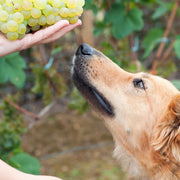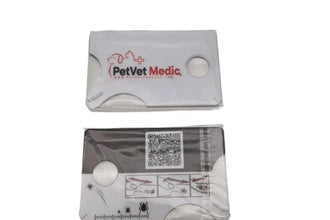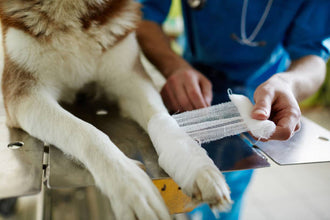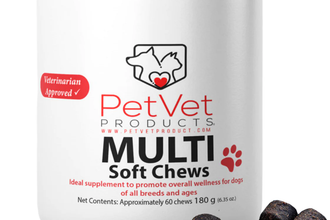
As pet owners, we often share our food with our furry friends, but some seemingly harmless snacks can be dangerously toxic to dogs. Grapes and raisins fall into this category, posing a significant risk that all dog owners should be aware of.
Why Are Grapes and Raisins Toxic to Dogs?
Grapes and raisins can cause kidney failure in dogs, which can be fatal if not treated promptly. What makes this even more concerning is that the exact cause of the toxicity is still unclear. Recent research suggests that Tartaric acid might be the culprit, but the specific reason why some dogs are affected while others seem unaffected remains a mystery.
How Much Is Too Much?
The number of grapes or raisins that can be toxic varies depending on the size and weight of the dog. However, it's important to note that even a small amount can cause severe reactions in some dogs.
- Grapes: The toxic dose is approximately 0.7 oz/kg of the dog's body weight. For a small dog, just a few grapes can lead to serious health issues.
- Raisins: The toxic dose is even lower, at about 0.11 oz/kg. Given their concentrated nature, raisins are even more dangerous than grapes.
Signs of Grape or Raisin Toxicity
Symptoms of grape or raisin toxicity can appear within a few hours of ingestion, but in some cases, they may not show up for several days. Here are some of the signs to watch out for:
- Vomiting and Diarrhea: These are often the first signs, occurring within a few hours of ingestion.
- Lethargy and Weakness: Your dog may seem unusually tired or unresponsive.
- Loss of Appetite: A dog affected by grape or raisin toxicity may refuse food.
- Abdominal Pain: You might notice your dog is uncomfortable, possibly indicating kidney damage.
- Increased Thirst and Urination: These are signs that the kidneys are not functioning properly.
- Reduced or No Urination: This is a serious sign of kidney failure.
If your dog shows any of these symptoms after consuming grapes or raisins, it's crucial to seek veterinary care immediately.
What to Do If Your Dog Eats Grapes or Raisins
If you suspect your dog has ingested grapes or raisins, act quickly:
- Contact Your Veterinarian: Time is critical. Call your vet or an emergency animal clinic immediately.
- Induce Vomiting: Your vet may instruct you to induce vomiting to prevent further absorption of the toxins but do this only under professional guidance.
- Administer Activated Charcoal: This can help absorb toxins in the stomach, but again, only do this if advised by a vet.
Prevention Is Key
The best way to protect your dog from grape and raisin toxicity is to prevent exposure in the first place.
Here are some tips:
- Keep Grapes and Raisins Out of Reach: Store them in secure containers, well out of your dog's reach.
- Educate Family and Friends: Ensure that everyone who meets your dog knows about the dangers of grapes and raisins.
- Be Cautious with Packaged Foods: Some baked goods and snacks contain raisins, so always check ingredients before sharing human food with your dog.
Conclusion
Grape and raisin toxicity is a serious issue that every dog owner should be aware of. While the exact cause of the toxicity is still being studied, the potential for kidney failure is well-documented. By understanding the risks and taking preventive measures, you can help keep your dog safe from this hidden danger. For a quick reference on how much grape or raisin is toxic based on your dog's weight, consult the easy-to-read chart in the Pet Vet First Aid Guide. Remember, when it comes to grapes and raisins, it's better to be safe than sorry.










